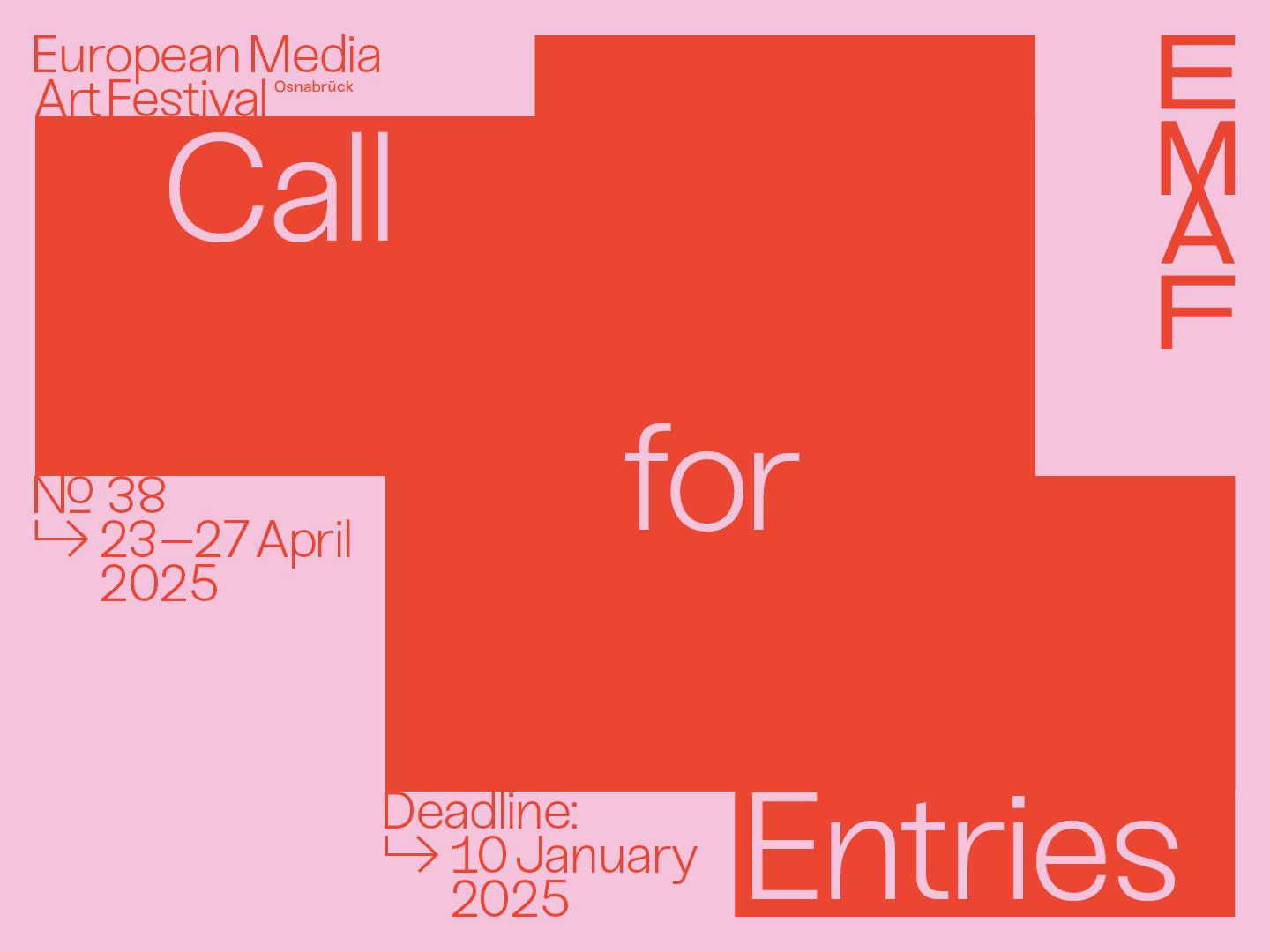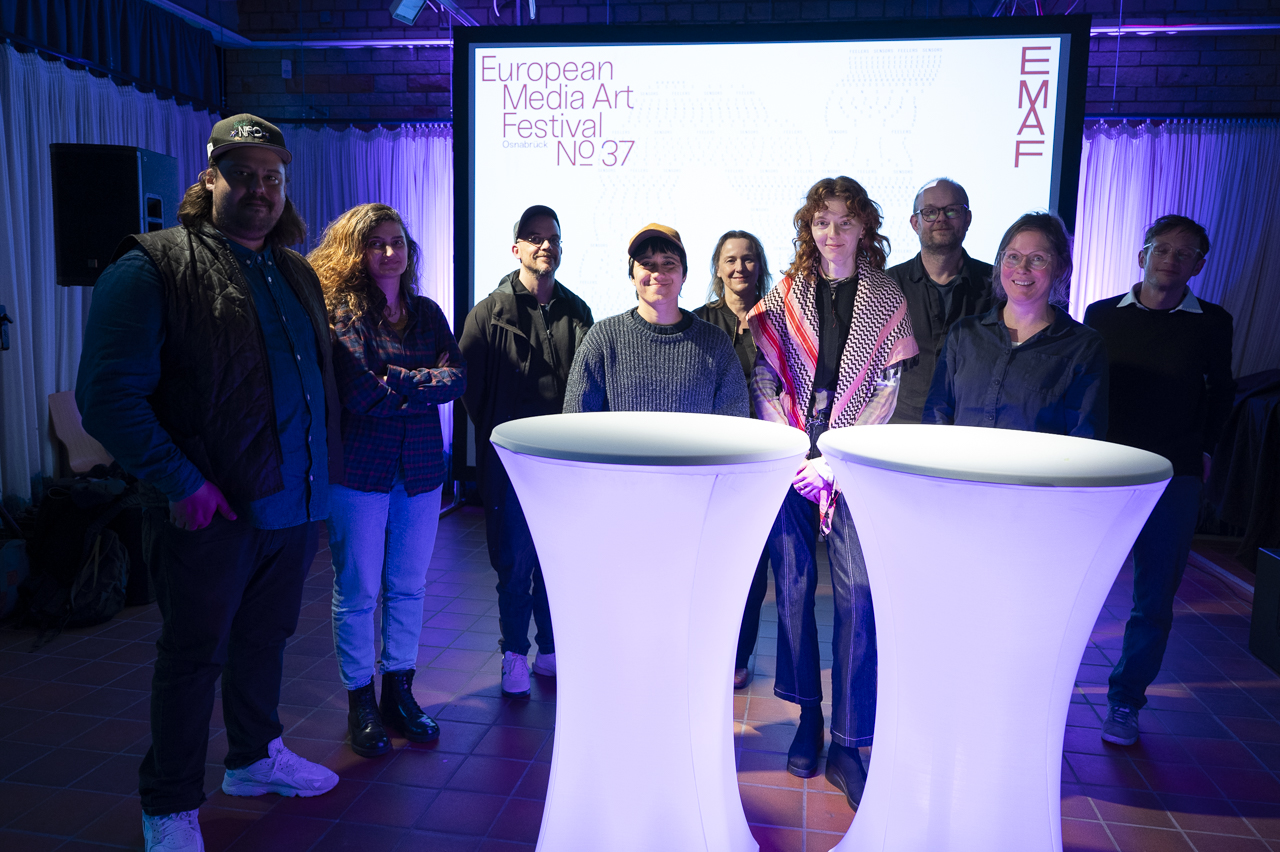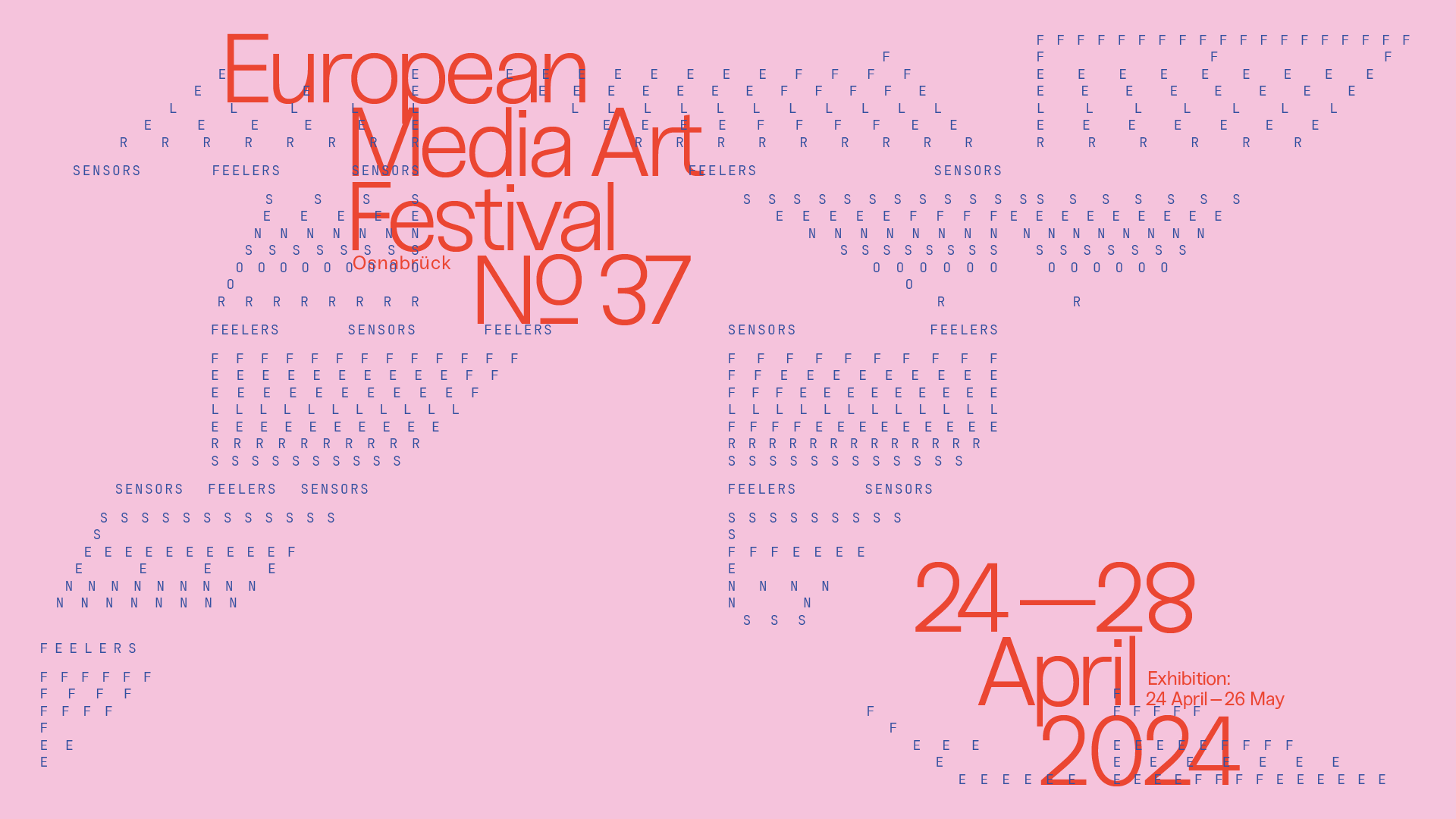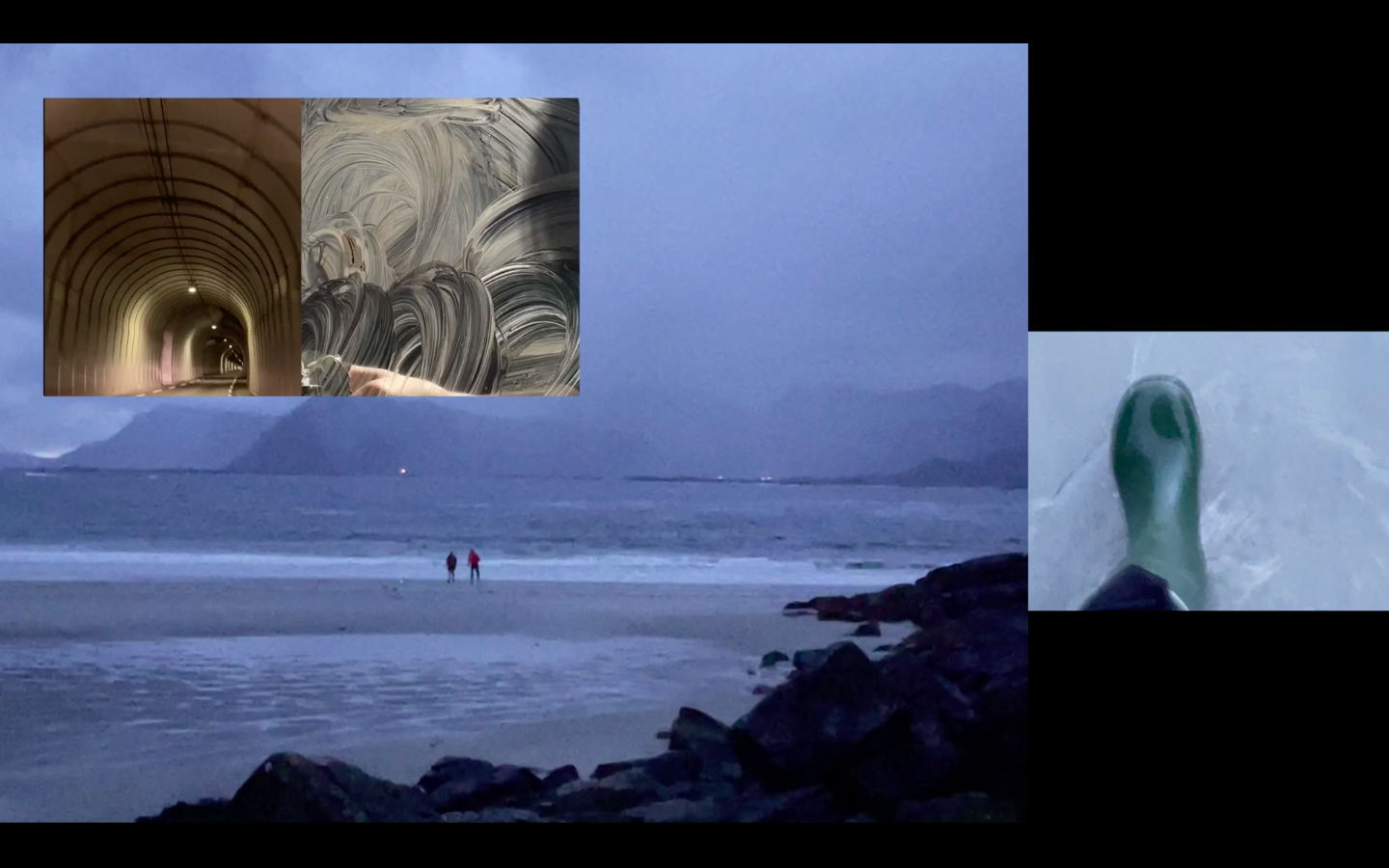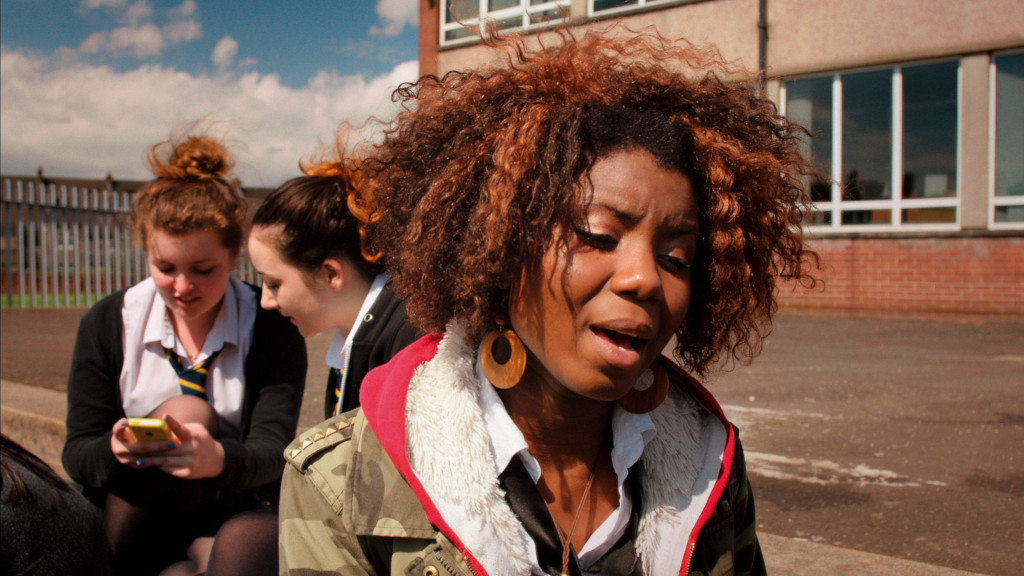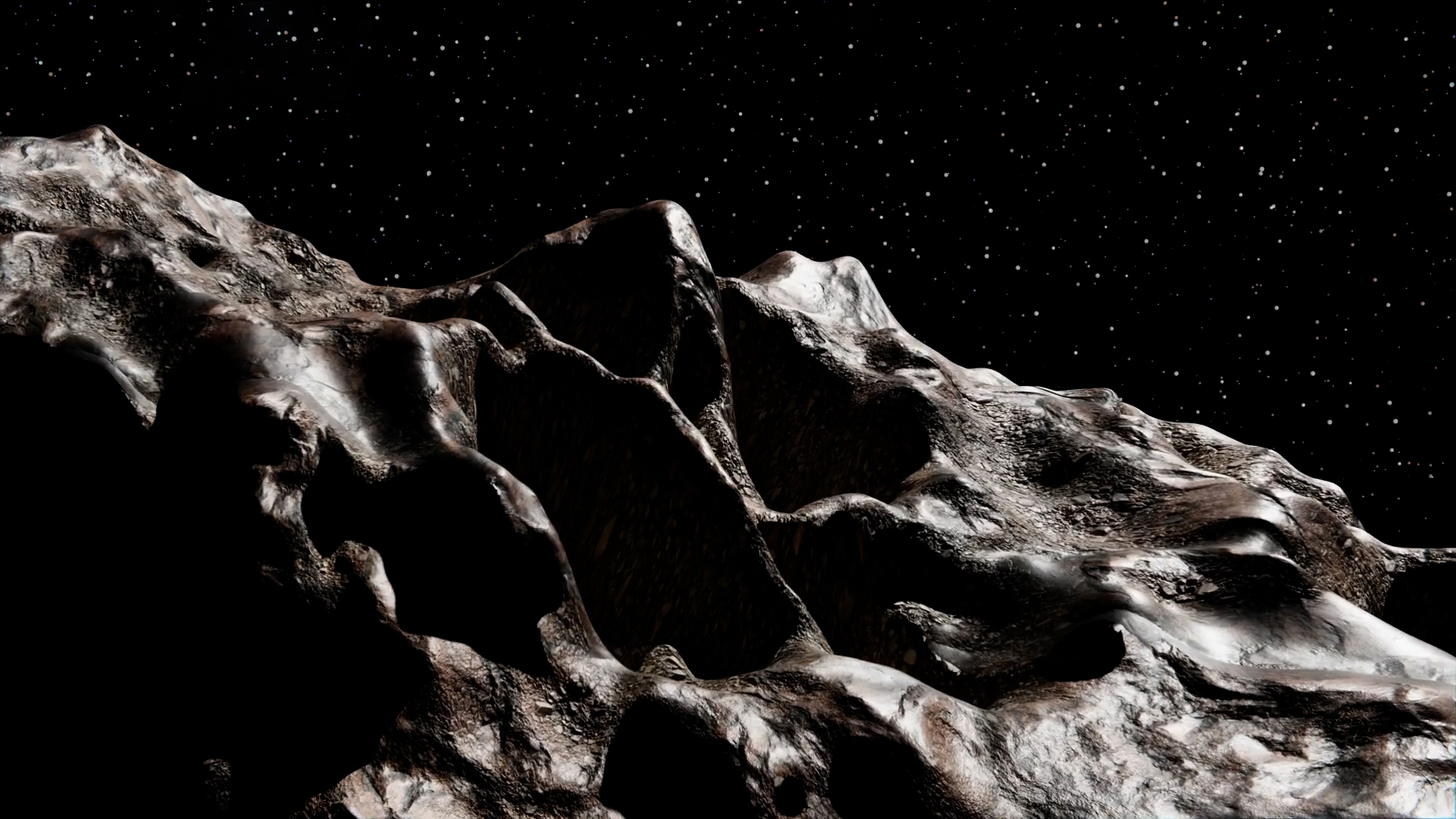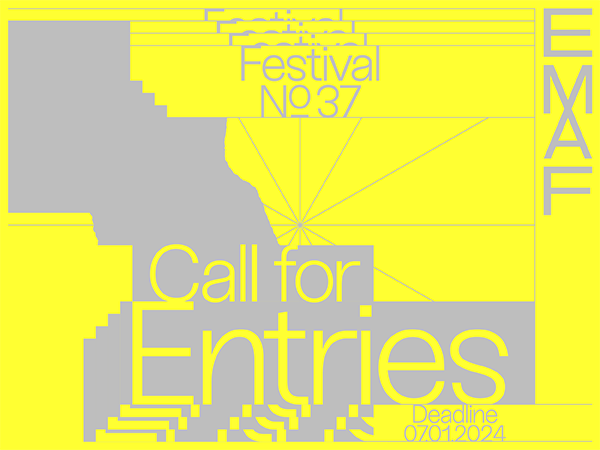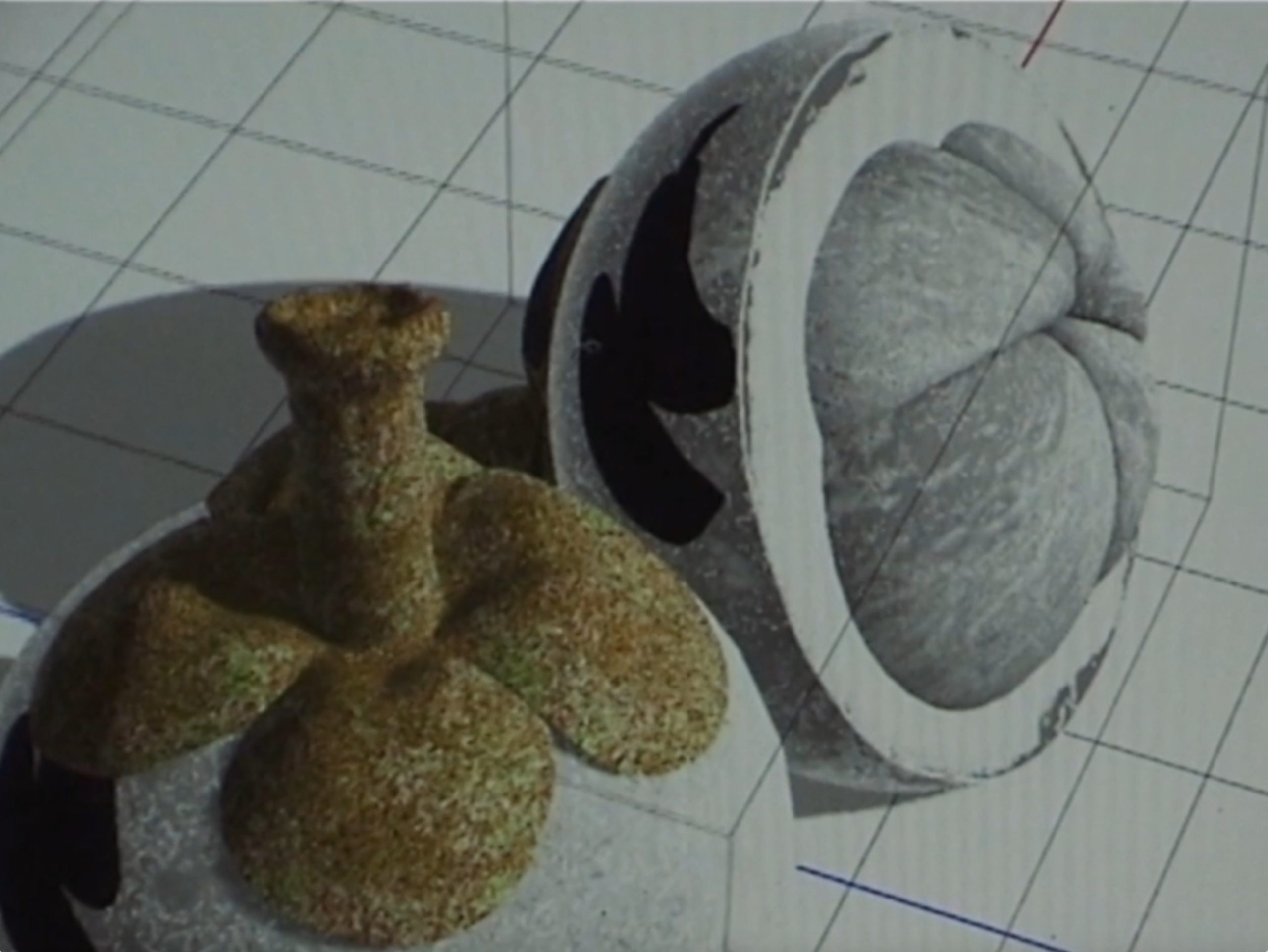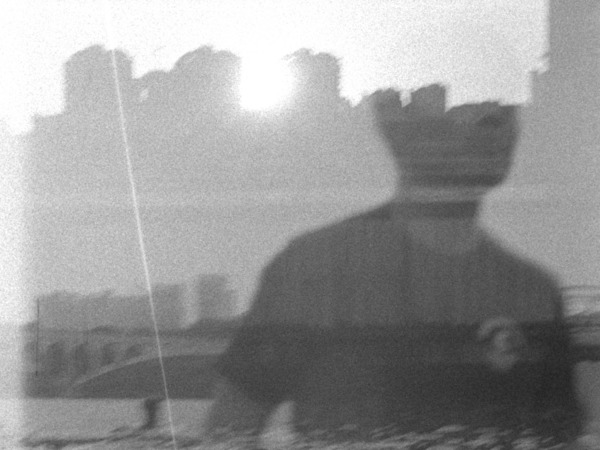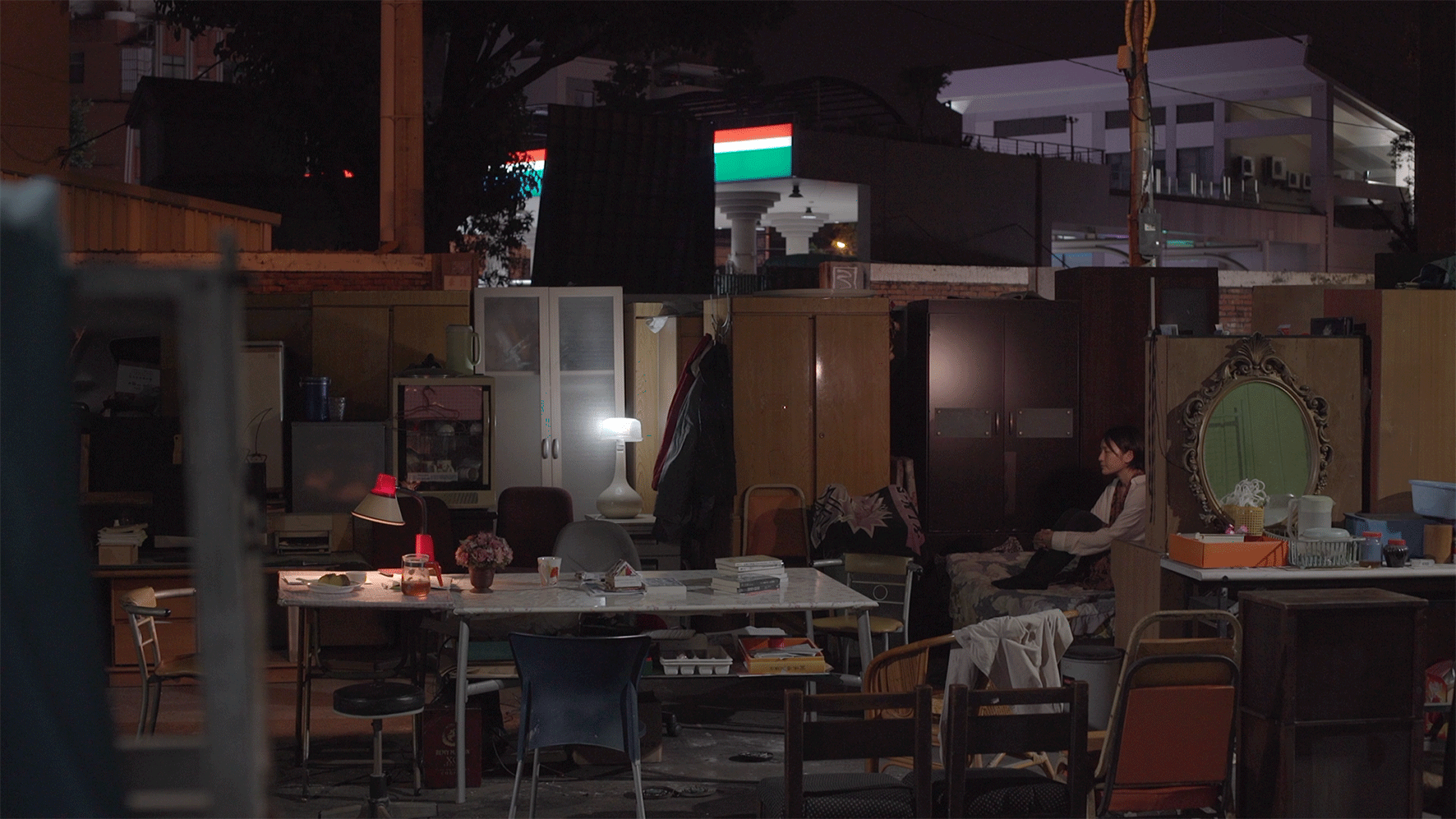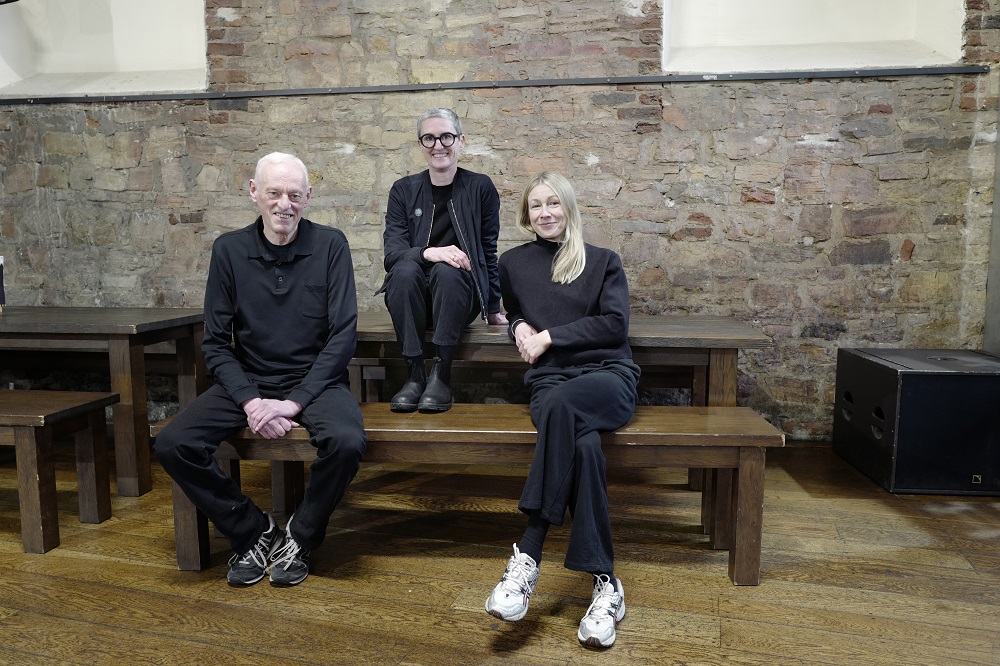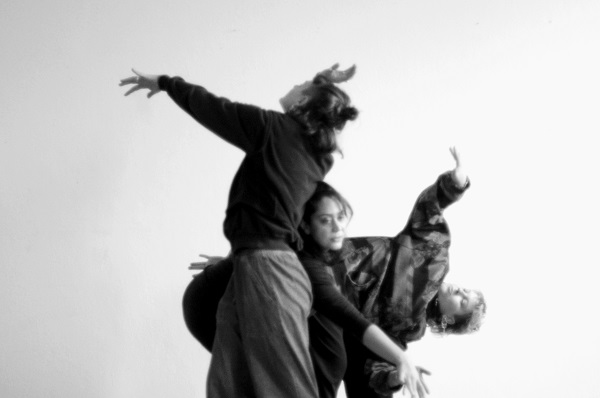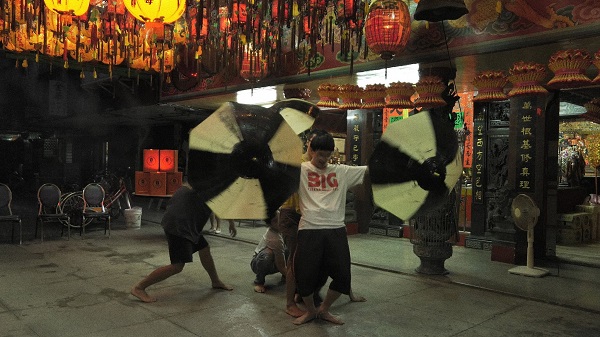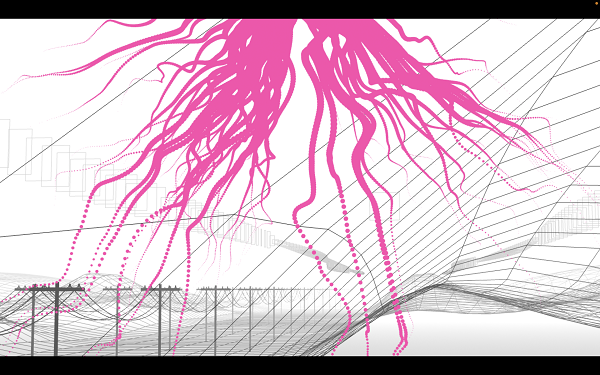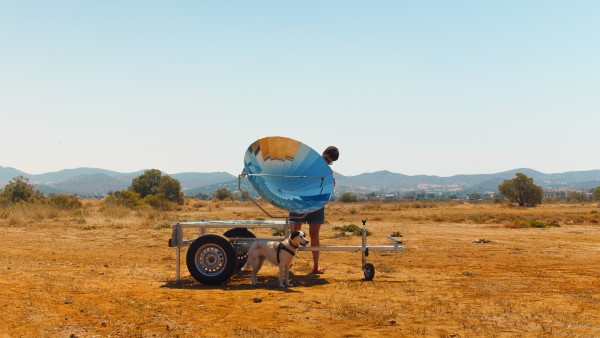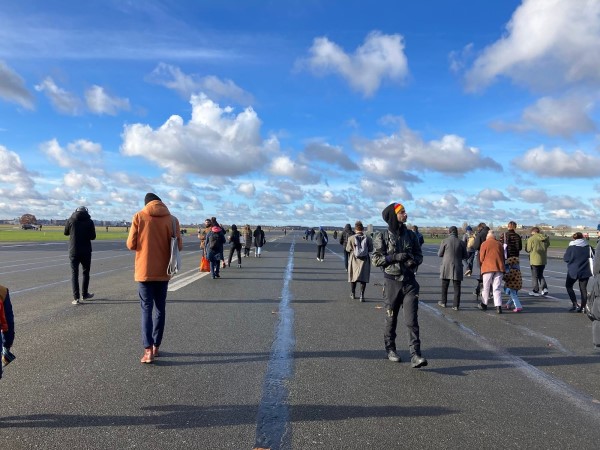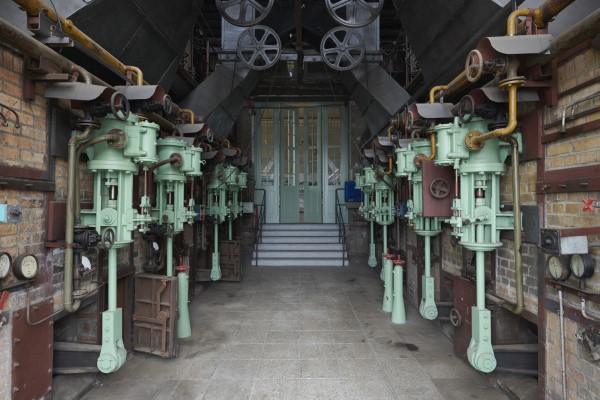04/27/2025
EMAF 38 - End of the Festival and Award Ceremony
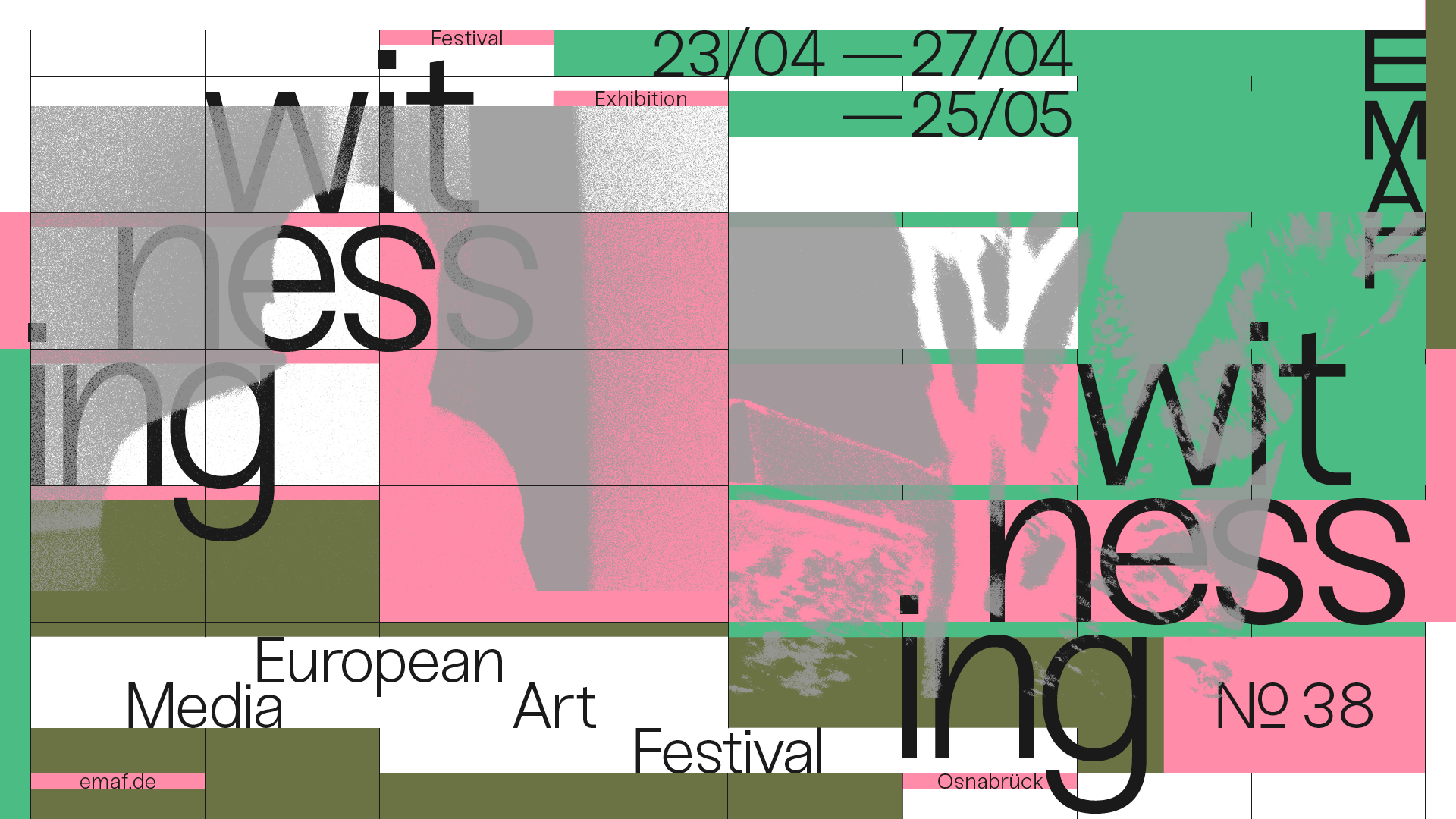
After five days, the 38th European Media Art Festival comes to an end today. More than 160 films, installations, performances, and talks were shown and experienced at nine different locations across the city. One of the highlights was the presentation of the EMAF Media Art Prize by the German Film Critics Association at the Kunsthalle Osnabrück this morning. Daphné Hérétakis was awarded for her work What we ask of a statue is that it doesn’t move (GR, FR 2024, 31’).
The film deals with the current political situation in Greece: in Athens, nothing seems to be happening, and the people are as silent as statues. But elsewhere in the city, a caryatid escapes from the museum and a splinter group calls for the destruction of all antiquities. Perhaps filmmaking is the only way to avoid turning to stone, says the synopsis.
The jury, consisting of Günter Minas, Bianca Jasmina Rauch and Hannes Wesselkämper, stated: “With anarchic humour while oscillating between documentary and fiction, the director follows a (fictitious) citizens’ initiative that wants to subvert the past by blowing up the Parthenon in Athens and replacing it with statues of people from the present day. The stagnation caused by the current political situation is transformed into a new movement, centuries-old traditions are thrown overboard with a sense of mischievous joy. Thus, What we ask of a statue is that it doesn’t move cleverly poses the question in the cinematic space: What traces of us will archaeologists of the future find?” A special mention goes to Crispin Yanisi for “Tila•pia.”
Both films were previously shown in the International Selection. This year, for the first time, all 31 films screened will receive the EMAF Award. The prize money will be divided equally among the selected artists, in addition to the usual screening fee. The winners are:
Lawrence Abu Hamdan, Ben Balcom, George Clark, Theo Cuthand, Chloë Delanghe & Mattijs Driesen, Sam Drake, Eitan Efrat & Sirah Foighel Brutmann, Zachary Epcar, Kevin Jerome Everson, Laurence Favre, Maïder Fortuné, Daphné Hérétakis, Mina Heydari-Waite, Hyejin Jung, Ferney Iyokina Gittoma, Pranami Koch, Mónica Martins Nunes, Ella McConnell, Monica Panzarino, Franca Pape, Kanthy Peng, Martyna Ratnik, Jazmin Rojas Forero, Sylvia Schedelbauer, Silke Schönfeld, Lina Selander, Jonathan Seungjoon Lee, Micah Weber, Helena Wittmann, Crispin Yanisi and Else/Xun Zhang
More information on the films is available here.
On the opening night alone, the Kunsthalle Osnabrück welcomed over 900 visitors. We were delighted to receive so many visitors who attended the EMAF for the first time, as well as those who have been our guests for decades.
The exhibition “Witnessing Witnessing,” curated by Inga Seidler, can be visited at the Kunsthalle Osnabrück until 25 May during the museum’s regular opening hours. Guided tours take place every Sunday at 4 pm and can also be booked at presse@emaf.de.
Thank you for your interest and we look forward to seeing you next year! The 39th European Media Art Festival will take place from 22 to 26 April 2026. We would be happy to send you pictures of the awards ceremony, the festival and the individual works on request. Please contact presse@emaf.de.
